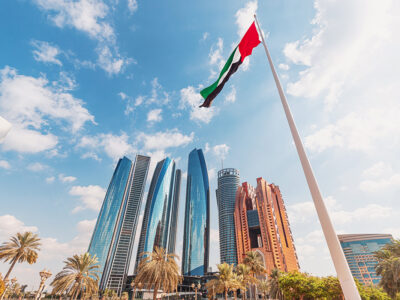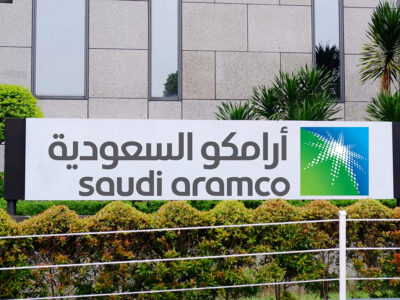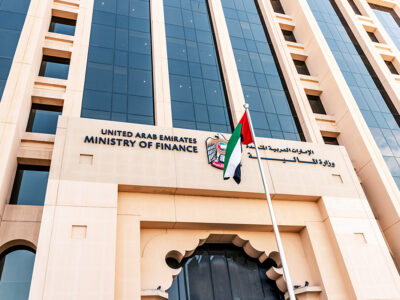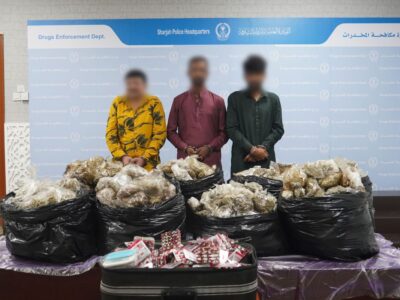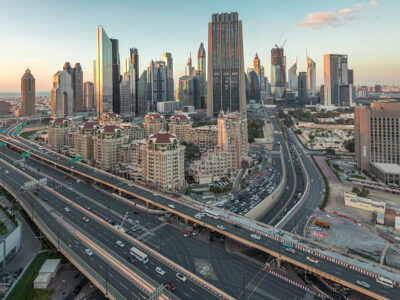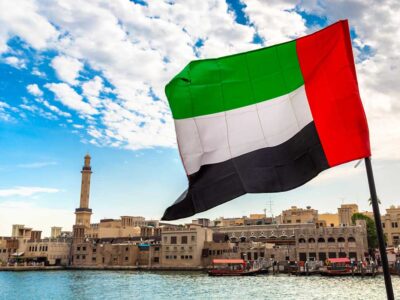It’s business as usual on this Wednesday afternoon in the crowded southern Beirut suburb of Dahieh, a Hezbollah stronghold. Teenagers adopting the Western hip-hop gangster look walk by veiled women covered in colorful hijabs. Pictures of ‘martyrs of the resistance’ hang on electric poles next to the familiar yellow flag of the Party of God. The area may be famous for its Islamic sympathies, but in spite of its reputation, Islamic banks here are striving to survive.
“The performance of Islamic banks is indeed unsatisfactory. This situation not only applies to Dahieh, but to all of Lebanon,” points out Dr Mutasim Mahmassani, general manager of the Islamic Baraka Bank, which owns a branch in Dahieh.
Lebanese Islamic banks account for only 0.3 percent of the Lebanese banking sector, where total assets amount to $110bn, according to professor Abdel Mawla Shaar, from the Ecole Supérieure des Affaires (ESA) in Beirut. In addition to Baraka Bank, there are currently four other Islamic banks in the country: BLOM Development Bank, Al Bilad Islamic Bank, the Lebanese Islamic Bank and Arab Finance House (AFH), which also has a branch in Dahieh.
It was only in 2004 that the (BDL) central bank’s Central Council passed law 575, which granted licenses for Islamic banks to operate in Lebanon.
A special Islamic banking committee, chaired by the BDL’s vice governor, was charged with defining the regulatory framework for Islamic banks. Only banks with a minimum capital of US$20m and a share value of $100 are allowed to offer Islamic finance services. Islamic banks are monitored by independent Sharia auditors and have to publicly disclose their annual reports.
“Lebanese banks basically offer similar services to traditional banks,” explains Dr Fouad Matraji, board member of AFH. A few exceptions are made for personal loans and overdraft operations, which both include cash advances.
As per sharia law, Islamic banks are not allowed to lend money or pay interest, so traditional deposits and loans are replaced by the mudaraba and murabaha systems. Mudaraba is a financial contract in which the investor entrusts money to a financial manager (mudarib) and any profits and losses are shared between them.
Murabaha is defined as a particular kind of sale, whereby the seller expressly mentions the cost he has incurred on the commodities to be sold and sells it to another person by adding a profit or mark-up. This trade of a non-monetary asset is similar to a loan and is sharia-compliant.
In spite of the wide range of products they offer, Lebanese Islamic banks are not triggering enthusiasm among the population. Bankers argue that this can be attributed to various factors.
“Islamic banks in Lebanon have been hurt by a series of financial scandals that involved so-called ‘pious’ business figures, who falsely boasted ethical and sharia-compliant business practices,” says one banker on condition of anonymity.
Two years ago, the Lebanese financial sector was rocked by a Ponzi scheme orchestrated by Salah Ezzedine, a businessman with close ties to Hezbollah. Known as the Lebanese Bernie Madoff, Ezzedine solicited clients using his business acumen and reputation as a devout man. He regularly donated to charities in the Beirut and southern regions, many of which were affiliated with Hezbollah. He even built a stadium and mosque in his hometown of Maaroub, and sponsored pilgrimages to Makkah. His benevolent acts, which were promoted by religious figures in the South, allowed him to embezzle over $500m from his victims, although official figures were never released. After his arrest, some Hezbollah members who were also his victims filed a lawsuit against him.
“Other reasons contributing to the sector’s slow growth stem from people’s lack of understanding on how Islamic banks operate,” underlines Mahmassani.
Many clients feel uncomfortable at the idea of not having a fixed interest, for example. In Islamic banks, deposited funds in the form of mudaraba do not earn interest but generate profit, often tied to the bank’s overall performance. However, due to low performance levels witnessed in recent years, deposits have earned on average less than that offered by traditional banks.
Shaar emphasises that while international Islamic banks registered double digit growth in recent years that exceeded 28 percent, the Lebanese sector barely managed to maintain its growth.
Article continues on next page…
“Since the enactment of the 2004 law, the sector has been weighed down by one political crisis after another,” acknowledges Matraji. The Lebanese economy was shaken in 2005 by the assassination of former prime minister Rafic Hariri, followed one year later by a one-month bloody war with Israel as well as a an eighteen-month political deadlock in 2007. Today, political squabbling has stalled the formation of a new government, with cabinet seats vacant since January 2011.
“Cultural factors also play in: according to a recent study by Ernest and Young, only 20 percent of Muslims were ready to sacrifice performance to be sharia-compliant,” explains Shaar.
Bankers also complain about the heavy restrictions imposed on the Islamic banking sector in Lebanon.
“In order to increase their profits as well as that of their depositors, Islamic banks initially invested in small-size real estate properties. The central banks, wary of speculation, put an end to the practice, which cut back our performance,” says Matraji.
In addition, larger real estate investment projects require the approval of a central bank committee as well as an official decree by the Council of Ministers. “We are basically treated as a foreign company,” adds Matraji.
Under Lebanese law, foreign companies wishing to acquire property in Lebanon are required to obtain a decree from the Council of Ministers.
There is also the matter of double taxation and registration fees. According to Shaar, a murabaha transaction incurs one taxation fee when the intermediary (bank) buys the asset and a second when it is sold to the client.
“The bank also pays double VAT on some products for the same reason,” says Mahmassani.
In addition, Lebanese Islamic banks can’t offer subsidised loans because there is no sharia-compliant equivalent on the market. Unlike traditional banks, they also can’t fructify their assets by investing in treasury bonds, because of the absence of a sukuk market.
Sukuk are the equivalent of a bond in Islamic financing, which represent undivided shares in ownership of tangible assets. In Lebanon, sukuk can’t be issued by the central bank as the legal framework currently bans individuals owning state property.
Another pitfall resides in the fact that in the Lebanese banking sector, size does matter. The first top ten Lebanese banks represent about 80 percent of the market.
Despite the hurdles, bankers do have possible solutions that would help alleviate some of the problems of Islamic banks.
Mahmassani believes that Islamic banks should stop thinking like traditional banks. “Islamic banks need to get back to their core activity, which is musharaka. Initially, Islamic banks were supposed to operate like venture capital companies, taking a share in various businesses,” he says. Musharaka is an equity partnership whereby each partner contributes capital to a project, though not necessarily in equal amounts.
Others, like Matraji, believe that Islamic banks should market themselves better, targeting Muslims as well as members of other religious communities interested in ethical business practices. This idea has even been developed further by Shaar.
“Islamic banks should focus more on services that put forth their fundamental role, which is corporate social responsibility.”
All bankers agree, however, that the legal framework in Lebanon regarding Islamic banks should be further developed and liberated from constraining policies.
